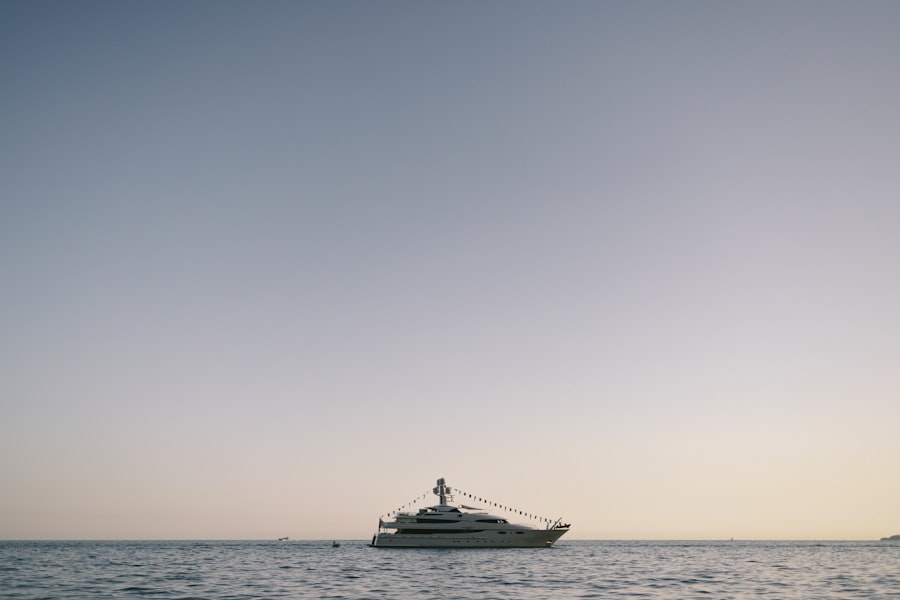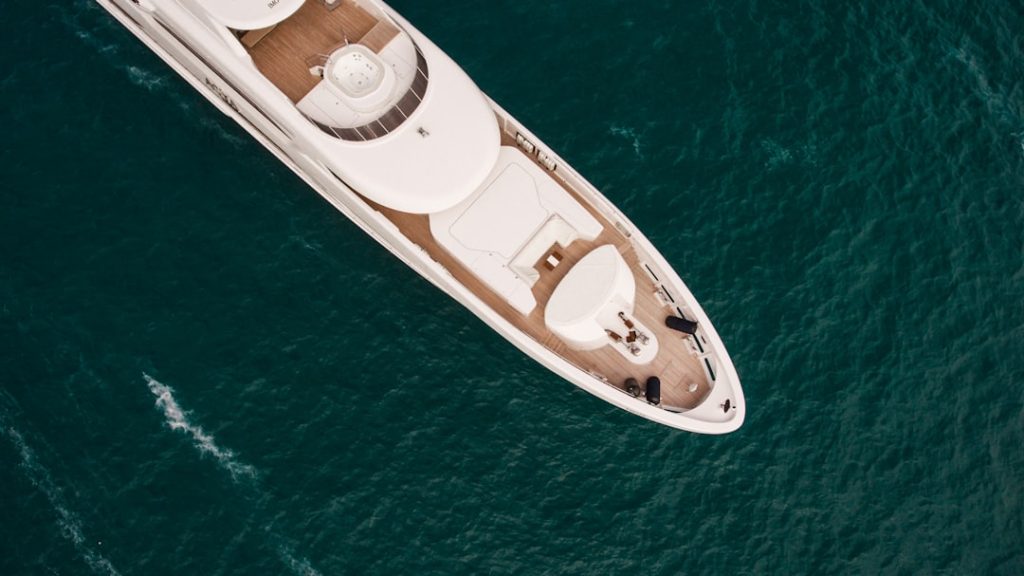Yacht marketing is a specialized field that requires a nuanced understanding of both the luxury market and the unique characteristics of the yachting lifestyle. The yacht industry is not merely about selling a vessel; it encompasses a lifestyle that appeals to affluent individuals seeking adventure, relaxation, and exclusivity. As such, yacht marketing must convey not just the technical specifications of a yacht but also the emotions and experiences associated with owning one.
This dual focus on product and lifestyle is what sets yacht marketing apart from other luxury goods marketing. In recent years, the yacht market has seen significant growth, driven by an increase in wealth among high-net-worth individuals and a growing interest in experiential luxury. This shift has necessitated a more sophisticated approach to marketing, one that leverages both traditional and modern techniques to reach potential buyers.
The challenge lies in effectively communicating the value of a yacht, which often transcends its physical attributes. Successful yacht marketing strategies must tap into the aspirations and desires of potential clients, creating a compelling narrative that resonates with their lifestyle choices.
Key Takeaways
- Luxury is central to effective yacht marketing, appealing to affluent buyers’ desires.
- Identifying and targeting the right audience ensures marketing efforts reach potential yacht buyers.
- Digital marketing and social media are essential tools for increasing visibility and engagement.
- Collaborations with yacht designers and builders enhance authenticity and product appeal.
- Creating exclusive experiences differentiates brands and attracts high-end clientele.
The Importance of Luxury in Yacht Marketing
Luxury is at the heart of yacht marketing, as yachts are often seen as symbols of status and success. The perception of luxury in this context goes beyond mere opulence; it encompasses craftsmanship, exclusivity, and personalized service. High-end yachts are often custom-built, featuring bespoke designs and state-of-the-art technology that cater to the specific preferences of their owners.
This level of customization is a key selling point and must be highlighted in marketing materials to attract discerning buyers. Moreover, the luxury aspect of yacht marketing extends to the overall experience associated with yacht ownership. Potential buyers are not just investing in a vessel; they are investing in a lifestyle that includes access to exclusive events, private charters, and unique travel experiences.
Marketing strategies must therefore emphasize the luxurious experiences that come with yacht ownership, such as private parties on board, access to secluded destinations, and the ability to entertain guests in an unparalleled setting. By focusing on these elements, marketers can create a narrative that positions yachts as not just products but as gateways to an elite lifestyle.
Targeting the Right Audience

Identifying and targeting the right audience is crucial in yacht marketing. The potential buyers of yachts are typically high-net-worth individuals who have specific interests and lifestyles. Understanding these demographics is essential for crafting effective marketing strategies.
For instance, younger affluent buyers may be more inclined towards adventure and exploration, while older buyers might prioritize comfort and luxury. Tailoring marketing messages to resonate with these different segments can significantly enhance engagement and conversion rates. In addition to demographic factors, psychographics play a vital role in targeting the right audience.
This involves understanding the values, interests, and behaviors of potential buyers. For example, those who value sustainability may be more attracted to eco-friendly yachts equipped with hybrid engines or solar panels. By conducting thorough market research and utilizing data analytics, yacht marketers can segment their audience more effectively and create personalized campaigns that speak directly to the desires and motivations of each group.
Utilizing Digital Marketing for Yacht Sales
| Metric | Description | Typical Value/Range | Importance for Yacht Sales |
|---|---|---|---|
| Website Traffic | Number of visitors to the yacht sales website | 1,000 – 50,000 monthly visitors | High – More traffic increases potential leads |
| Conversion Rate | Percentage of visitors who inquire or request a quote | 2% – 10% | Critical – Directly impacts sales volume |
| Cost Per Lead (CPL) | Average cost to acquire a qualified lead via digital ads | 50 – 300 | Medium – Helps optimize marketing budget |
| Social Media Engagement | Likes, shares, comments on yacht-related posts | 500 – 10,000 engagements per month | Medium – Builds brand awareness and trust |
| Email Open Rate | Percentage of recipients who open marketing emails | 20% – 40% | High – Indicates interest and effective targeting |
| Email Click-Through Rate (CTR) | Percentage of email recipients who click on links | 5% – 15% | High – Drives traffic to listings and offers |
| Search Engine Ranking | Position of yacht sales website on search results | Top 3 positions preferred | High – Increases organic traffic and credibility |
| Average Time on Site | Average duration visitors spend on the website | 2 – 5 minutes | Medium – Indicates engagement with content |
| Return on Ad Spend (ROAS) | Revenue generated per unit of ad spend | 3x – 10x | Critical – Measures marketing effectiveness |
In an increasingly digital world, leveraging online platforms for yacht marketing has become essential. Digital marketing offers a range of tools and strategies that can enhance visibility and reach potential buyers more effectively than traditional methods. Websites dedicated to yacht sales can showcase listings with high-quality images, detailed specifications, and virtual tours, allowing prospective buyers to explore yachts from the comfort of their homes.
This level of accessibility is particularly important in a market where buyers may be located across the globe. Search engine optimization (SEO) is another critical component of digital marketing for yachts. By optimizing content for relevant keywords, marketers can improve their visibility on search engines, making it easier for potential buyers to find listings.
Additionally, pay-per-click (PPC) advertising can be employed to target specific demographics based on their online behavior and interests. Social media platforms also play a significant role in digital marketing strategies, allowing marketers to engage with audiences through visually appealing content that showcases the lifestyle associated with yacht ownership.
Collaborating with Yacht Designers and Builders
Collaboration with yacht designers and builders is an integral part of effective yacht marketing. These partnerships can enhance credibility and provide valuable insights into the latest trends and innovations in yacht design. By working closely with designers, marketers can gain access to exclusive information about new models, features, and technologies that can be highlighted in promotional materials.
This collaboration not only enriches the marketing narrative but also positions the brand as an authority in the industry. Furthermore, co-branding opportunities can arise from these collaborations. For instance, a luxury yacht builder may partner with a renowned designer or artist to create limited-edition models that appeal to collectors and enthusiasts.
Such collaborations can generate buzz within the market and attract attention from media outlets, further amplifying marketing efforts. By aligning with respected figures in the industry, yacht marketers can enhance their brand image and reach new audiences who may be interested in unique offerings.
Creating Exclusive Yacht Experiences

Creating exclusive experiences is a powerful strategy in yacht marketing that goes beyond simply selling a product. Potential buyers are often drawn to the idea of unique adventures that come with yacht ownership—experiences that cannot be replicated elsewhere. This could include private sailing trips to hidden coves, gourmet dining prepared by renowned chefs on board, or access to exclusive events such as yacht shows or regattas.
By emphasizing these experiences in marketing campaigns, brands can create a compelling narrative that appeals to the desires of affluent clients. Moreover, offering personalized services can further enhance the allure of yacht ownership. This could involve bespoke itineraries tailored to individual preferences or concierge services that handle all aspects of yacht management—from maintenance to crew hiring.
By highlighting these personalized offerings in marketing materials, brands can position themselves as providers of not just yachts but comprehensive lifestyle solutions that cater to the unique needs of each client.
The Role of Social Media in Yacht Marketing
Social media has transformed the landscape of yacht marketing by providing platforms for direct engagement with potential buyers. Visual platforms like Instagram and Pinterest are particularly effective for showcasing the beauty and luxury of yachts through stunning imagery and videos. Marketers can leverage these platforms to share high-quality content that highlights not only the yachts themselves but also the luxurious experiences associated with them—such as sunset cruises or lavish onboard parties.
Engagement on social media also allows brands to build communities around their products. By sharing user-generated content from satisfied customers or hosting contests that encourage followers to share their own yachting experiences, brands can foster a sense of belonging among their audience. Additionally, influencer partnerships can amplify reach; collaborating with lifestyle influencers who resonate with target demographics can introduce yachts to new audiences who may not have previously considered ownership.
Future Trends in Yacht Marketing
As the yacht industry continues to evolve, so too will its marketing strategies. One notable trend is the increasing emphasis on sustainability within yacht design and operation. As environmental concerns become more prominent among consumers, marketers will need to highlight eco-friendly features such as hybrid engines or sustainable materials used in construction.
This shift not only aligns with consumer values but also positions brands as forward-thinking leaders in an industry that is often perceived as extravagant. Another emerging trend is the integration of technology into yacht experiences. From smart home systems on board to virtual reality tours for prospective buyers, technology is reshaping how yachts are marketed and experienced.
Marketers will need to stay ahead of these technological advancements to effectively engage with tech-savvy consumers who expect seamless digital interactions throughout their purchasing journey. As these trends continue to develop, yacht marketers must remain agile and innovative in their approaches to capture the attention of discerning buyers in an ever-competitive landscape.


